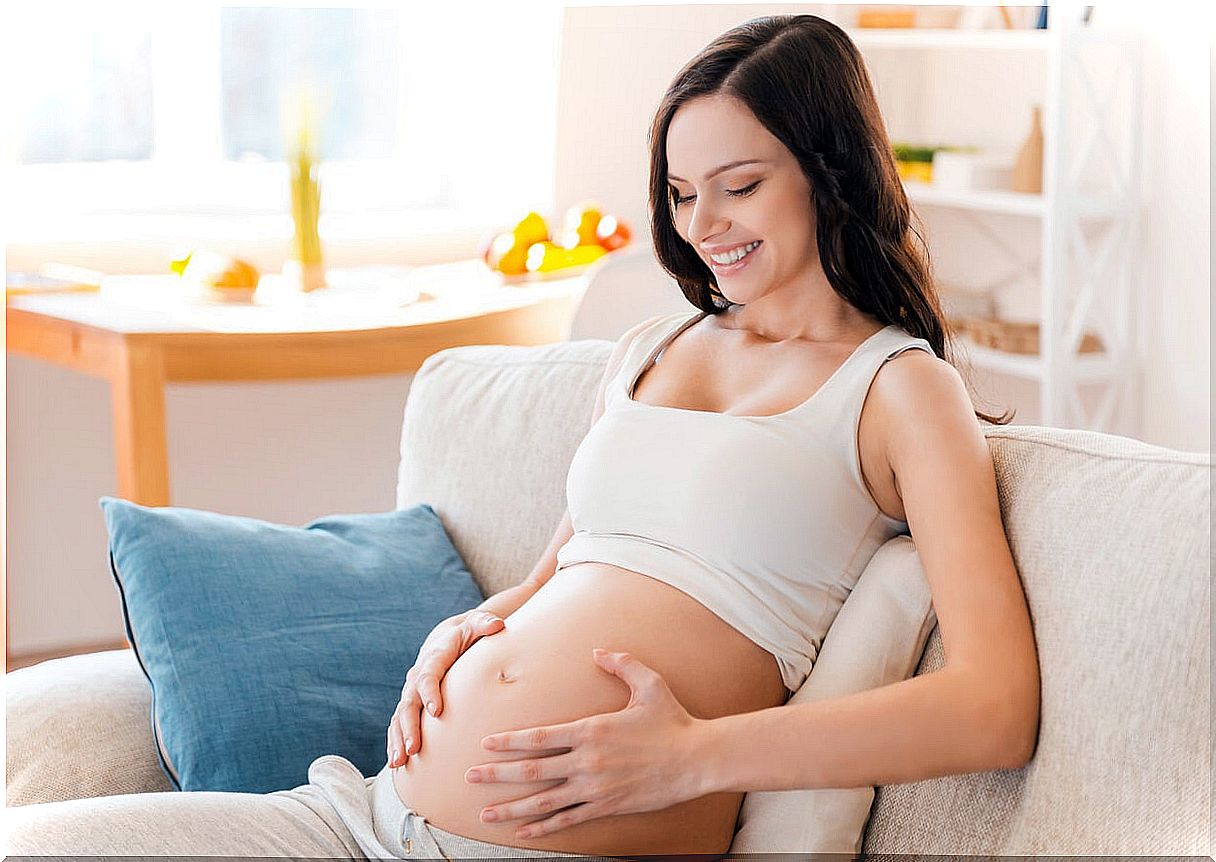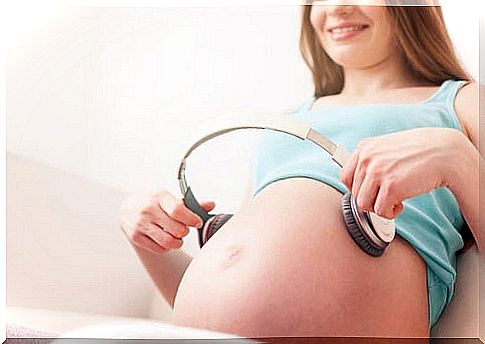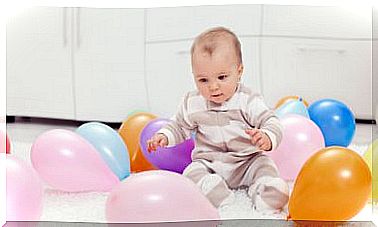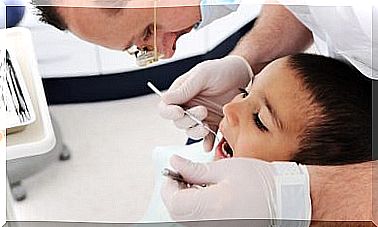Why Does A Baby Need To Move In The Womb?

There is nothing more exciting for a mother during pregnancy than feeling the baby begin to move in the womb; It is a way of knowing that the little one is well, that he is growing and strengthening to soon have him in his arms.
Baby’s movements go beyond just feeling it; They respond to a need in fetal development to strengthen their bones and joints. This is confirmed by a study published in the journal Development . So, let’s see what it’s all about and how important it is for the baby to move in the womb.
In what week of pregnancy will I feel the movement of the baby in my uterus?
From the moment a woman knows that she is expecting a baby, she does not stop thinking about when she will feel it and usually touches her belly in search of some sensation that indicates that it is there, inside her.
The baby’s movements in the womb begin between 7 and 15 weeks; they are very mild and the baby is very small, so they are almost imperceptible. It is then around week 20, between the fourth and fifth month, when you will feel your baby move for the first time.
This movement in your uterus will be very smooth, like tickling or butterflies, and little by little it will become more intense and constant, until you feel its kicks and even when it turns. When the baby is older, his movements will be more energetic, in addition, you will increase your perception and you will know his routine and his sleep and wake rhythm.

The movements that you perceive of your baby, generally, respond to movements of arms and legs, movements of the head and jaw, sucking and swallowing, hiccups, hand-face contact, stretching, yawning and rotation. In current ultrasounds it has been observed that babies can smile, cry and blink inside the womb.
These movements will be more intense between weeks 28 and 34. After this week, they will decrease a bit due to the lack of space in your uterus. Of course, you will always feel them, especially when pushing or stretching.
Why is it important for the baby to move in the womb?
As we have discussed, a scientific study published in the journal Development showed that the movement of the embryo incites the molecules that guide the fate of the cells that will form bones and joints, so that they become strong and functional tissues.
In this research, scientists observed the molecular changes in the joints of chicken and mouse embryos, which works in the same way in all species, evaluating the differences between a group of embryos with free movements and a control group, which was immobilized. In the embryos in which the movements were absent, there were bone malformations and alterations in the functionality of bones and joints.
Doctor Paula Murphy, in charge of the study, explained that in the absence of movement “the cells that should form the articular cartilage form bone by receiving an incorrect molecular signal.”
This is the reason why the baby’s movements appear so early, spontaneously through reflexes generated by the spinal cord and, as fetal development progresses, towards week 18, intentional movements are made with greater complexity. motor and functional.
On the other hand, the amniotic fluid, where the baby is suspended, makes these movements lighter and easier, thus allowing the musculoskeletal system to grow properly.
In pregnancy, the baby needs to move in the uterus to:
- Strengthen the neuromuscular system.
- Adequately form and strengthen bones and joints.
- Evaluate the baby’s activity, as it is an easy way to monitor his well-being.
- Reaffirm the affective bond between mother, father and baby.
How can I stimulate my baby’s movement?

Babies are usually very active in the afternoon and at night, when the mother is at rest. Your movements may be more constant at specific times. As your pregnancy progresses, you will get used to the rhythm and intensity of their movements and their kicks that, although they can be annoying, let you know that the little one is fine.
If the idea is for it to move, you can wake it up and stimulate it, taking into account these recommendations:
- Sit relaxed and enjoy the connection, caress your tummy and talk to him, he will surely answer your call.
- Have a sweet treat or some chocolate; glucose stimulates your movements.
- Put a soft music on your tummy, it will encourage it to move.
- Include your partner in this ritual; You will like to know that Mom and Dad want to feel it.
One of the ways to check your baby’s well-being during the third trimester is by evaluating his movements and kicks for a set time several times a day. In case there are few or that, indeed, after stimulating it you do not receive answers, you should go to your gynecologist as soon as possible to evaluate through the ultrasound that everything is going well in your pregnancy, because the baby needs to move in the uterus.









